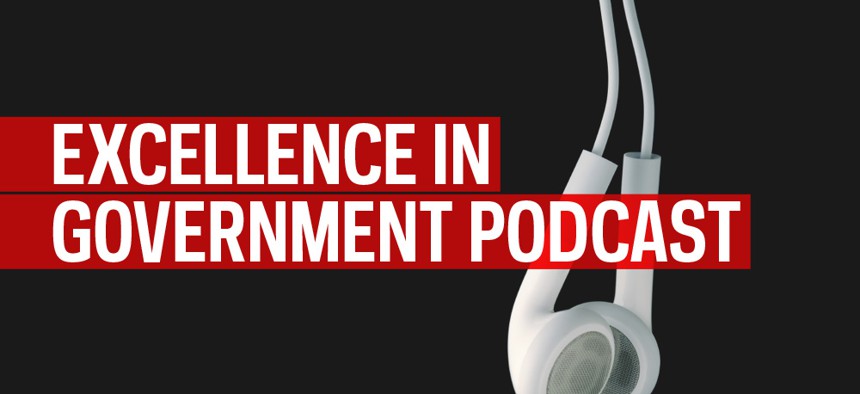
Cleaning Up GSA: A Year After Scandal, Has The Agency Improved?
GSA's Acting Administrator shares how the agency has turned around.
Listen to the story:
Download this episode | Subscribe on iTunes
Last year, Dan Tangherlini took over at the General Services Administration amidst scandal and turmoil. Following revelations of overspending at a training conference in Las Vegas that led to his predecessor’s resignation, Tangherlini was brought over from the Treasury Department to become GSA’s Acting Administrator.
Last week, President Obama nominated Tangherlini to stay on permanently and drop “acting” from his title, stating that he had “helped restore the trust of the American people in the General Services Administration by making the agency more efficient, accountable and transparent.”
We recently caught up with Tangherlini at the Excellence in Government conference and asked him what he’s done to improve the performance of the agency this past year:
EIG: Over the last year, you’ve faced a lot of challenges stepping into this role at GSA, what have been your top priorities stepping into [this position]?
Tangherlini : I think our top priority was trying to address the concerns that were raised last spring, demonstrate that we understood that, obviously, clear mistakes had been made, lines had been crossed and that we were going to create the right environment for accountability within the organization.
[We addressed] additional problems that came out as a result of that and then, more importantly, really looked at the organization from top to bottom and asked ourselves some fundamental questions about what role we play in government and how we can do that at the best possible level—reducing costs, increasing efficiency, better serving our customer agencies and, through them, the American people.
EIG: I want to cue in on the idea of cost saving. With so much concern about waste in government, particularly in GSA over the last year, how have you worked to find those cost savings in new and innovative ways?
Tangherlini: It’s been a two-track process. One is an internal process where we really looked at the way we spend money. Obviously we focused in on conferences and travel but we also looked at our hiring practices, our compensation practices and just ways we spend money in general.
We engaged our employees and asked them, “What can we do to be more efficient internally within GSA?” . . . We ran something called “ The Great Ideas Hunt .” Got 600 ideas, 20 thousand comments . . . and through that we found a number of immediately implementable ideas within GSA that saved between $5 – 6 million. We think, through a combination of our efforts, we saved over $70 million just last year within GSA by being more efficient and effective in the way we deliver services. . . .
The second track, was looking at the agencies themselves and asking them if they did more work with GSA, if they leveraged the scale and scope of our buying—through things like strategic sourcing, through things like fleet management, through things like co-location and more efficient use of space—are there ways that they can save money?
So I’ve spent a good part of the last year going to each agency and talking [with leadership] about ways that we can collaborate. Focus on the things that we have a common interest in and drive down the costs of delivering those services.
EIG: As a federal leader, how important has listening been in your job over the last year?
Tangherlini: I don’t think you can be a leader without listening. I think it’s really important that we understand, frankly, how the agency works and how we provide our services and what our limitations are. You’re going to get that information from the people who are actually doing the work. So, the best way to, frankly, have some sense of how you’re going to get where you want to go is to talk to the people who are doing all the work in getting you there.
To hear the entire interview, listen or subscribe to the Excellence in Government Podcast.







